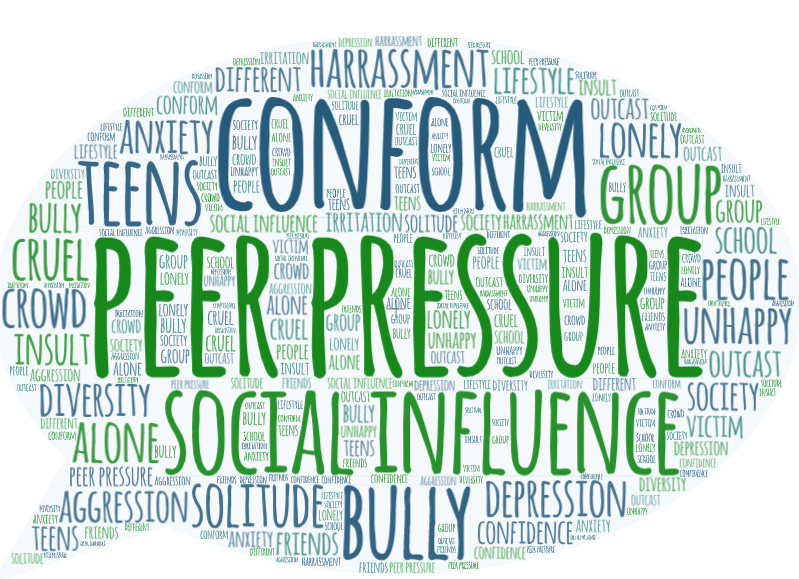Peer pressure plays key role in teen lives
February 28, 2019
Peer pressure is the social influence to adopt a certain type of behavior, dress, or attitude to be accepted by peers, and it can have constructive or detrimental effects on teens.
Approximately 86 percent of teens surveyed at St. Ursula Academy Cincinnati said that they’d experienced peer pressure, and many of them thought it was a common part of life.
Peer pressure has been shown to change the brain to view acceptance and the opinions of others as more important than the truth.
A USC study shows that while teens are with friends, they are more tempted to take dangerous or ridiculous chances that they wouldn’t take alone. Research found that both the striatum, the part of the brain that recognizes reward, and the medial prefrontal cortex, the part of the brain associated with social reasoning, are more active while in a group.
Peer pressure can cause teens to partake in life-threatening activities such as drinking and doing drugs. The top reasons that kids start is to look cool, be accepted, have fun, and relieve boredom. Even if they know it’s wrong and leads to detrimental health issues, the need to be part of a group can overrule their discretion.
Statistics show that of the teens who start drinking before the age of 14, 40 percent of them become alcoholics at some point in their lives.
But friends aren’t the only ones pressuring adolescents nowadays. Social media represents a large portion of the influence on the younger generation as well.
More than 90 percent of preteens ages 11-12 in the U.S. have social media, despite the fact that the age restriction is 13. This causes peer pressure to start at a young age because people tend to post only the best of themselves online, causing kids to be more self-conscious and apt to succumb to influence.
But peer pressure isn’t always bad. It has been shown to pave the path to adulthood, allowing teens the opportunity develop independent decision making, if they choose to not follow the crowd. This can translate into an adult better equipped to make good choices.
Positive pressure can also guide teens to make good decisions and gain new experiences, such as doing a volunteer project or joining a new club, because their friends are doing it.
Regardless of the effects, the influence of peers has been growing throughout the years from the rise of social media, easier access to illegal substances, and teens being faced with more decisions and stress at a younger age than previous generations.












